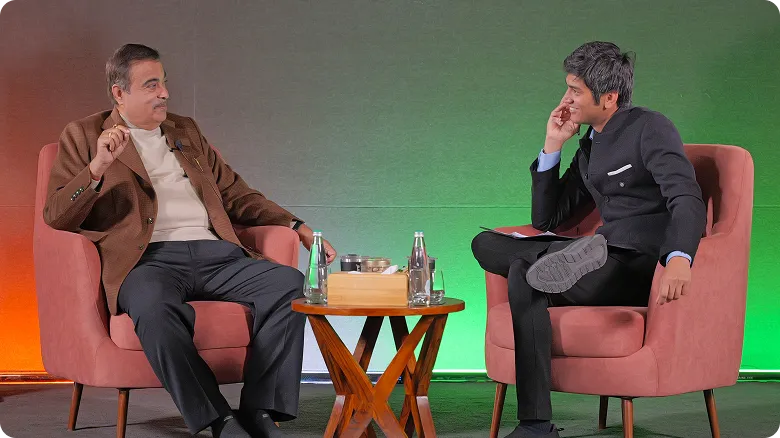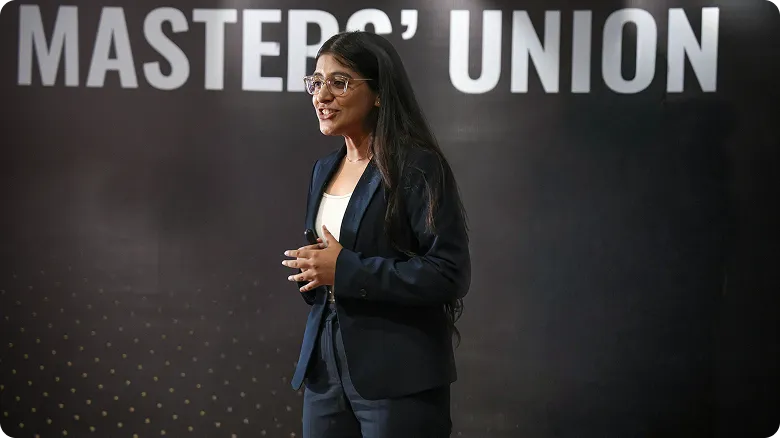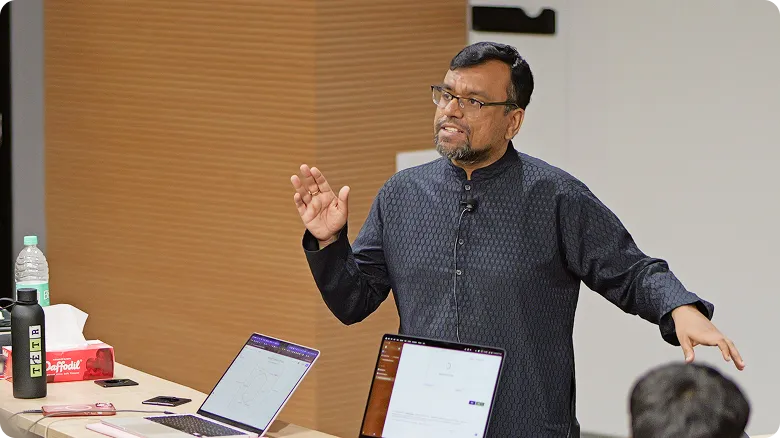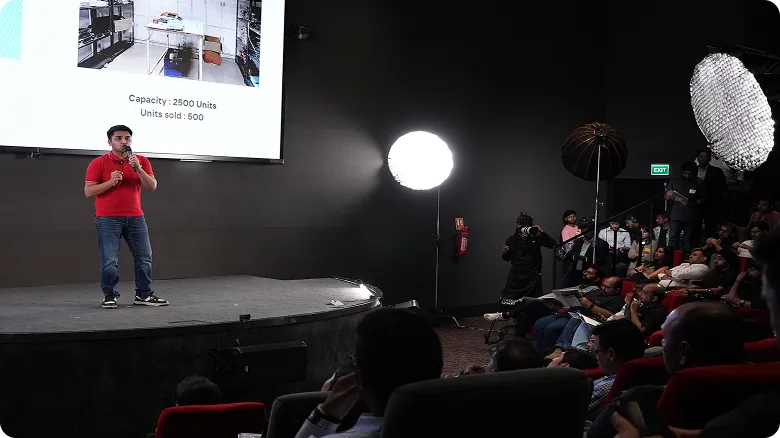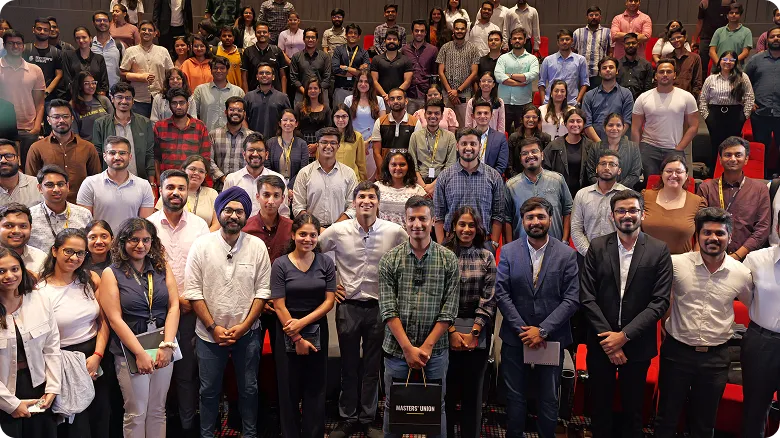Undergraduate
Undergraduate (Global)
Postgraduate
PGP in Technology and Business Management
PGP in Technology & Business Management
(Young Leaders Cohort)
PGP in Human Resources & Organisation Strategy
PGP in Sports Management & Gaming
PGP in Applied AI & Agentic Systems
PGP in UI/UX & Product Design
PGP in Sustainability & Business Management
PGP Bharat
Executive
Family Business
Careers
Innovations
Faculty
MU Ventures
Enterprise Education
Student Life
Jobs
Become a Master
events
For Companies
Blog
CXO Insights
From Filmmaking to Finance: Karan Johar’s Masterclass on Bollywood
February 4, 2025
.png)
What does it take to build a billion-dollar Bollywood empire? It’s not just about star power and storytelling — it’s about strategy, financial acumen, and adapting to an ever-changing industry.
Masters’ Union founder Pratham Mittal visited Karan Johar in Mumbai and gained insights into the changing landscape of Bollywood, why superstardom is fading, and why data-driven storytelling is the future.
As one of the most influential voices in Bollywood, Johar’s insights provided a rich overview of his experience in Indian filmmaking.
Want to watch the video instead?
Watch this podcast to understand the “business” of Bollywood and learn how K-Jo inherited Dharma Productions and produced Bollywood’s biggest blockbusters:
The journey from cluelessness to mastery
Johar’s tenure as the head of Dharma Productions began with challenges that many second-generation entrepreneurs can relate to. When he inherited the studio after the passing of his father, Yash Johar, he confessed to being “utterly clueless” about the financial aspects of the business.
A poignant letter from his late father served as both a guide and a source of inspiration, enabling him to navigate the complexities of running a film studio. From signing cheques with “lots of love” to becoming a savvy entrepreneur, Johar’s journey underscores the importance of financial literacy in creative industries.
The changing face of stardom

The conversation took a nostalgic turn as Johar reflected on the fading aura of Bollywood’s legendary stars, such as Shahrukh Khan and Salman Khan. He highlighted a significant shift in audience engagement, where the concept of superstardom is diminishing in the era of social media.
While fame has become more accessible, true superstardom—the kind that drives audiences to cinemas in droves—has become a rarity. This change signals a transformation in the dynamics of fan loyalty and marketability.
Balancing creativity and commerce with digital disruption
One of the most thought-provoking aspects of Johar’s discussion was the dichotomy between creative instincts and financial prudence. He emphasised that filmmaking is not just an art form but also a business.
Understanding cost structures, optimising budgets, and aligning creative risks with market realities are crucial for success. “A film can fail at the box office but still be a financial success if the costs are managed well,” Johar explained, offering a nuanced perspective on risk-taking in the creative sector.
Moreover, the rise of digital streaming platforms has profoundly impacted the economics of film genres. Johar noted that while certain genres, such as romantic comedies and slice-of-life dramas, perform better on digital platforms, big-budget spectacles continue to draw audiences to cinemas. This trend underscores the need for filmmakers to adapt their strategies to evolving consumer behaviours and distribution channels.
Beyond filmmaking: Opportunities and need for data-driven storytelling

Johar’s insights extended beyond traditional filmmaking, shedding light on the myriad opportunities within the industry. From VFX and marketing to digital distribution and data analytics, the film industry offers diverse pathways for aspiring entrepreneurs. “You don’t have to be a director or an actor to succeed in cinema,” he remarked, encouraging business professionals to explore roles that combine technical expertise with creative problem-solving.
In a rapidly digitising world, Johar emphasised the growing importance of research and data analysis in filmmaking. By incorporating audience feedback and screening data, filmmakers can refine their products to align more closely with viewer preferences. This shift towards a research-driven approach highlights the increasing convergence of art and analytics in the creative process.
A vision for the future
Johar’s optimism for Indian cinema was palpable. He envisions an industry that can scale its infrastructure and storytelling to compete on the global stage. With increased access to screens and a focus on quality narratives, he believes Indian cinema has the potential to achieve the kind of global recognition enjoyed by franchises like Avatar or Harry Potter. “The future is bright, but it requires a blend of creativity and business acumen,” he affirmed.







